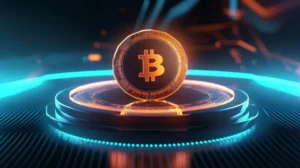What is Blockchain Real Estate Tokenization?
Blockchain technology is a decentralized, immutable, and secure ledger that has revolutionized the way we do business. Tokenization is the process of converting an asset into a digital token on a blockchain network.
The combination of these two technologies has led to the emergence of real estate tokenization.
Real estate tokenization is the process of issuing digital tokens that represent ownership of a real estate asset. These tokens can be bought, sold, or traded like any other cryptocurrency.
Blockchain technology is used to ensure transparency, security, and immutability of the ownership records.
The real estate industry has been slow to adopt new technologies, but now it is embracing blockchain and tokenization. The benefits of tokenization are numerous, and it has the potential to transform the real estate industry.
What is Real Estate Tokenization?
Real estate tokenization is the process of converting a real estate asset into a digital token on a blockchain network. These tokens represent fractional ownership of the asset, and can be traded on cryptocurrency exchanges.
The benefits of real estate tokenization are numerous. It allows for increased liquidity, fractional ownership, and access to global investors.
It also provides transparency and security, as the ownership records are stored on a decentralized ledger.
There have been several successful real estate tokenization projects, such as the St. Regis Aspen Resort and the Luxury Student Housing in the UK.
How Does Real Estate Tokenization Work?
The tokenization process involves converting a real estate asset into digital tokens. These tokens are then issued on a blockchain network, and can be bought, sold, or traded like any other cryptocurrency.
Blockchain technology is used to ensure transparency, security, and immutability of the ownership records. Smart contracts are also used to automate the process of buying and selling tokens.
Advantages of Real Estate Tokenization
Real estate tokenization offers several advantages over traditional real estate investments. It allows for increased liquidity, fractional ownership, and access to global investors.
It also provides transparency and security, as the ownership records are stored on a decentralized ledger.
Fractional ownership allows investors to buy a portion of a real estate asset, which was previously only available to high net worth individuals or institutional investors.
This allows for greater diversification and reduces the risk of investing in a single asset.
Challenges and Risks of Real Estate Tokenization
There are several challenges and risks associated with real estate tokenization. Regulatory challenges, lack of understanding and education, and security risks are some of the major concerns.
Regulatory challenges arise due to the lack of clarity around the legal framework governing tokenization.
Lack of understanding and education is another challenge, as many investors and real estate professionals are not familiar with blockchain and cryptocurrency.
Security risks are also a concern, as digital assets are vulnerable to hacking and cyber attacks.
To mitigate these risks, it is important to ensure that proper security measures are in place.
V## Future of Real Estate Tokenization
Real estate tokenization is still in its early stages, but it has the potential to transform the real estate industry. It is predicted that the market for real estate tokenization will grow significantly in the coming years.
Real estate tokenization has the potential to democratize real estate investments and provide access to a global pool of investors.
It could also lead to the disintermediation of traditional real estate players, such as brokers and agents.
Conclusion
Real estate tokenization is a new and exciting development in the real estate industry.
It offers several advantages over traditional real estate investments, such as increased liquidity, fractional ownership, and access to global investors.
However, there are also several challenges and risks associated with real estate tokenization, such as regulatory challenges, lack of understanding and education, and security risks.
It is important to address these concerns to ensure the long-term success of real estate tokenization.
In conclusion, real estate professionals and investors should learn more about real estate tokenization and blockchain technology to take advantage of the opportunities they offer.






